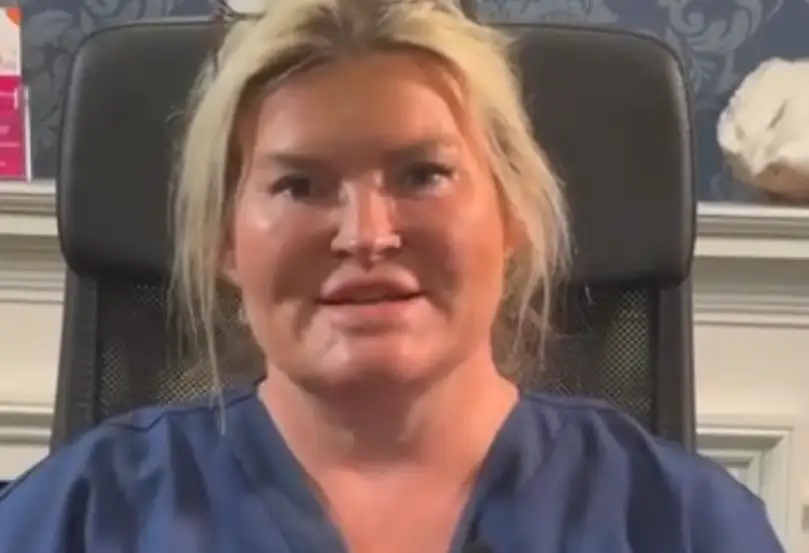Can menopause cause depression?
Menopause is an important stage in every woman’s life. It marks the end of a woman’s reproductive years, and it’s usually a time of changes and adjustments. But did you know that menopause can also come with some unwanted side effects, like symptoms of depression?
It’s important to recognize the signs that you might be feeling more than just the normal blues. It’s a serious issue that needs to be addressed, and it’s time to take a closer look at how menopause can lead to depression.
Symptoms of Depression During Menopause
I’m sorry to hear that you’re feeling sad or worthless during menopause. It’s completely normal to experience a lack of motivation or energy during this time, as well as sleep disturbances. These can all be symptoms of depression, so it’s important to recognize them and get the help you need.
Feelings of sadness or worthlessness
But perhaps the most difficult symptom of menopause to manage is the feelings of sadness or worthlessness. It’s understandable to feel overwhelmed and down when dealing with the changes menopause brings. Women may feel sadness and hopelessness, and in some cases, these feelings can be quite severe.
It’s important to remember that feeling down is a normal emotion to experience, and it doesn’t necessarily mean that something is wrong. But if these feelings become persistent or affect your day-to-day life, you should reach out and talk with your doctor. They can provide the support and help you need to help you manage your symptoms of depression.
Lack of motivation or energy
Moving on to the topic of Lack of motivation or energy, a common symptom of depression during menopause is feeling drained and exhausted all the time. If you’re finding that the smallest of tasks take up too much effort and you’re struggling to muster the energy to do anything, it could be a sign of depression. This kind of persistent fatigue can significantly reduce quality of life and make everyday activities a challenge. It’s important to seek help if you’re dealing with this kind of symptom of depression.
Sleep disturbances
Moving on from the previous section, one of the common symptoms of depression during menopause is sleep disturbances. Insomnia is one of the most frequent complaints among women who are going through menopause. Having trouble falling asleep or staying asleep can be very frustrating, and the lack of restorative sleep can have an impact on your emotional and physical wellbeing. Other sleep issues associated with depression during menopause include restless leg syndrome, daytime sleepiness, and early-morning awakenings.
It’s important to understand that these sleep disturbances are not just annoying, but can also be related to depression.

Causes of Depression During Menopause
Depression can be triggered by a variety of causes during menopause, including hormonal changes, stressful life events, and lack of social support. While menopause is a natural part of aging, these changes in hormones and lifestyle can have a profound impact on mental health.
Hormonal changes can lead to an imbalance in neurotransmitters, leading to depression. Estrogen and progesterone levels drop, and this can cause physical as well as emotional symptoms. Stressful life events, such as a divorce or bereavement, can also lead to symptoms of depression.
Hormonal changes
Now that we have discussed the symptoms of depression during menopause, let’s explore the possible causes of this mental health issue. A key factor to consider is hormonal changes – the decline of estrogen and progesterone during menopause can have an impact on your mood and emotional state. Changes in hormone levels can lead to feelings of sadness, irritability, and anxiety. As a result, women are at a heightened risk for developing depression during this life stage.
Stressful life events
Aside from hormonal changes, another cause of depression during menopause can be stressful life events. Whether it be a major life transition, such as the death of a loved one or a job loss, or lesser yet still difficult situations, such as a minor argument with a friend, these struggles can have a lasting effect on one’s mental health. Going through a stressful situation can cause someone to feel overwhelmed, lonely, and helpless. This can lead to the feeling of depression, and with the added hormonal changes from menopause, the symptoms of depression can become even more intense. It’s important to remember that we all go through difficult times, and it’s ok to reach out for help.
Lack of social support
In addition to hormonal changes and stressful life events, lack of social support can also be a major contributing factor to depression during menopause. It’s easy to feel isolated or lonely during this difficult transition in life, and having a strong support network of people you can turn to is key. Without a sense of community, or an understanding of what you’re going through, it can be hard to stay positive and hopeful.
It’s important to stay connected to friends and family and to reach out to them if you’re feeling down. If you’re having trouble finding people to talk to, there are many support groups available for women going through menopause, and these can be a great source of comfort.
Treatments for Depression During Menopause
Depression during menopause is a difficult situation to be in, and finding the best treatment(s) can be overwhelming. Medication can be a great way to help manage the symptoms of depression, but it comes with its own risks and side effects. Cognitive Behavioral Therapy (CBT) can also be beneficial by providing practical strategies to help manage depression. Lastly, regular exercise has been proven to reduce symptoms of depression and improve overall quality of life. All three treatments have their own advantages and disadvantages, so it’s important to talk to your doctor to find the best option for you.
Medication
The transition into the next section is clear – once the causes of depression during menopause have been established, it is important to consider what treatments are available. One option is medication. Medication can be an effective way to reduce symptoms of depression, as it can target the imbalance of chemicals in the brain responsible for the condition. Your doctor may prescribe antidepressants, or other medications, depending on your situation. It is important to remember that these medications may take up to four to six weeks to take full effect, and to speak with your doctor if you have any immediate concerns.
Cognitive Behavioral Therapy
Now that we understand the causes of depression during menopause, it’s important to understand the treatments available. Cognitive Behavioral Therapy, or CBT, is one of the most effective treatments for depression. It focuses on changing negative thought patterns that contribute to an individual’s depression. CBT is based in the idea that our emotions are driven by our thoughts, and by retraining those thoughts, we can change our emotional state.
CBT encourages individuals to challenge their negative beliefs and replace them with more positive ones. It also helps individuals learn new skills to better manage their emotions and cope with stress. Through CBT, individuals can learn to recognize their triggers, identify any patterns in their thoughts and behavior, and develop strategies to better manage their depression.
Exercise
To combat the symptoms of depression during menopause, exercise can be a great option. Regular physical activity has been shown to improve mood and reduce stress. Even just 20 minutes a day can have a huge impact on overall wellbeing. Walking, cycling, swimming, and running are all great ways to get started. Yoga and other gentle forms of exercise can be beneficial too, as they help with relaxation and increasing endorphins.
Exercising with others can also be a great way to increase motivation and form a support system. Joining a group class or exercising with friends can be a great way to keep up with physical activity. It can be helpful to start small and gradually increase what you’re comfortable with.
Tips for Coping with Menopausal Depression
When dealing with menopausal depression, it’s so important to take care of yourself. Eating a healthy diet, getting regular exercise, and talking to a therapist are all great ways to manage your mental health. Eating nutrient-rich foods can help reduce the symptoms of depression and give your energy a boost. Regular exercise, like walking, jogging, or dancing, is also key to improving your mood. Finally, talking to a therapist can be a great way to work through any issues that arise. Everyone’s journey is different, but these tips can help get you started.
Get regular exercise
As menopausal depression can be overwhelming, it’s important to find ways to cope. One of the most effective methods is to get regular exercise. Not only can physical activity help improve your mood and reduce stress, but it can also help you to better manage your symptoms of depression.
Getting into a workout routine can be difficult, especially when you are feeling down. However, it doesn’t have to be a daunting task. Any form of exercise can be beneficial, so don’t feel pressured to stick to a particular type. Whether it’s going for a walk, running, or doing yoga, do whatever works best for you.
By making exercise a regular part of your routine, you’ll be able to reap the benefits.
Talk to a therapist
Taking the initiative to talk to a therapist can be daunting, especially if you’re feeling overwhelmed by your symptoms of depression. However, it’s an important step in managing your menopausal depression. A therapist can help you identify and work through the issues causing your depression, as well as provide practical solutions to help you cope. It’s also important to remember that your therapist is there to listen and provide empathy, so don’t be afraid to open up. Talking to a therapist can help you feel more empowered to take control of your mental health.
You don’t have to go through this alone. A qualified therapist can offer guidance and support as you navigate the changes associated with menopause.
Eat a healthy diet
Having discussed treatments for depression during menopause, let’s turn to ways of coping with menopausal depression. One of the most important things you can do is eat a healthy diet. Eating the right foods can provide your body and mind with much-needed nutrients and energy to cope with the symptoms of depression.
You don’t have to completely overhaul your eating habits. Start small and add more healthy options as you go. For example, if you usually have a snack of chips and soda, try choosing something like fruit and yogurt instead. Adding more leafy greens, whole grains, lean proteins, and healthy fats to your plate can make a big difference.
When to Seek Help for Menopausal Depression
Feeling overwhelmed, difficulty managing daily activities and thoughts of suicide are all signs of menopausal depression, and it’s important to recognize when it’s time to seek help. If you’re feeling exhausted, irritable, and unable to enjoy the activities you used to, it’s likely a sign of depression. Even if these feelings come and go, it’s still important to take them seriously. If your symptoms interfere with your regular activities, or if you’re having suicidal thoughts, you should not hesitate to reach out for help.
Italicizing words can help emphasize a point, like seeking help.
Feeling overwhelmed
If you’re feeling overwhelmed with the symptoms of depression, it can be difficult to manage your daily activities. It’s important to recognize that it is a common feeling during this time, and there is help available. It’s normal to feel overwhelmed and anxious during menopause, but it’s important to not let these symptoms take over your life. Try to take time for yourself and practice self-care. That could mean anything from a calming yoga class to a hot bath.
If you’re struggling to handle things on your own, don’t be afraid to reach out for help. Talking to a mental health professional can be incredibly beneficial, as they can provide you with the tools and resources to help you manage your depression.
Difficulty managing daily activities
Another sign that you may need to seek help for menopausal depression is difficulty managing your daily activities. If it is becoming more and more difficult to keep up with your usual activities and obligations, it may be a sign of depression. If you find yourself struggling to complete tasks that used to be easy for you, such as making meals, taking care of your children, or going to work, it could be time to seek help. It can be hard to admit that you need help, but it is important to remember that seeking help is a sign of strength, not weakness.
Thoughts of suicide
The most concerning symptom of menopausal depression is when thoughts of suicide start to enter your mind. It can be an incredibly overwhelming feeling, leaving you feeling scared and helpless. If you find yourself having thoughts of suicide, take it seriously and reach out for help right away. Nobody should have to go through this alone, and it’s important to remember that it’s ok to ask for help. A mental health professional can provide you with the support and coping strategies you need to help you start to feel better.
Conclusion
Menopause can be an emotionally overwhelming time for many women. The sudden symptoms of depression can be a major source of distress. Fortunately, there are treatments that can help to manage the condition. It is important to be mindful of the potential causes of menopausal depression and to take steps to cope with it in a healthy way.
If you are feeling overwhelmed, it is important to reach out and seek help. Talk to your healthcare provider, who can suggest treatments to help manage the symptoms and provide emotional support. Don’t be afraid to ask for help, as you deserve to feel your best during menopause.
If you’d like to try a natural remedy, MenoBliss could help you. With 38 natural active ingredients to help improve hormonal balance, MenoBliss helps reduce aches and pains, hot flashes, mood swings, depression, insomnia, brain fog, and lack of desire. Order yours today and feel the difference.



